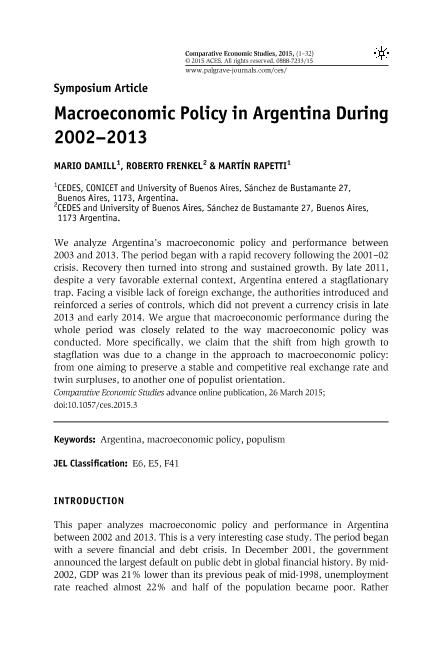Artículo
Macroeconomic policy in Argentina during 2002-2013
Fecha de publicación:
09/2015
Editorial:
Springer
Revista:
Comparative Economic Studies
ISSN:
0888-7233
Idioma:
Inglés
Tipo de recurso:
Artículo publicado
Clasificación temática:
Resumen
We analyze Argentina's macroeconomic policy and performance between 2003 and 2013. The period began with a rapid recovery following the 2001-02 crisis. Recovery then turned into strong and sustained growth. By late 2011, despite a very favorable external context, Argentina entered a stagflationary trap. Facing a visible lack of foreign exchange, the authorities introduced and reinforced a series of controls, which did not prevent a currency crisis in late 2013 and early 2014. We argue that macroeconomic performance during the whole period was closely related to the way macroeconomic policy was conducted. More specifically, we claim that the shift from high growth to stagflation was due to a change in the approach to macroeconomic policy: from one aiming to preserve a stable and competitive real exchange rate and twin surpluses, to another one of populist orientation.
Palabras clave:
Argentina
,
Macroeconomic Policy
,
Populism
Archivos asociados
Licencia
Identificadores
Colecciones
Articulos(SEDE CENTRAL)
Articulos de SEDE CENTRAL
Articulos de SEDE CENTRAL
Citación
Damill, Mario; Frenkel, Roberto; Rapetti, Martín Gervasio; Macroeconomic policy in Argentina during 2002-2013; Springer; Comparative Economic Studies; 57; 3; 9-2015; 369-400
Compartir
Altmétricas




